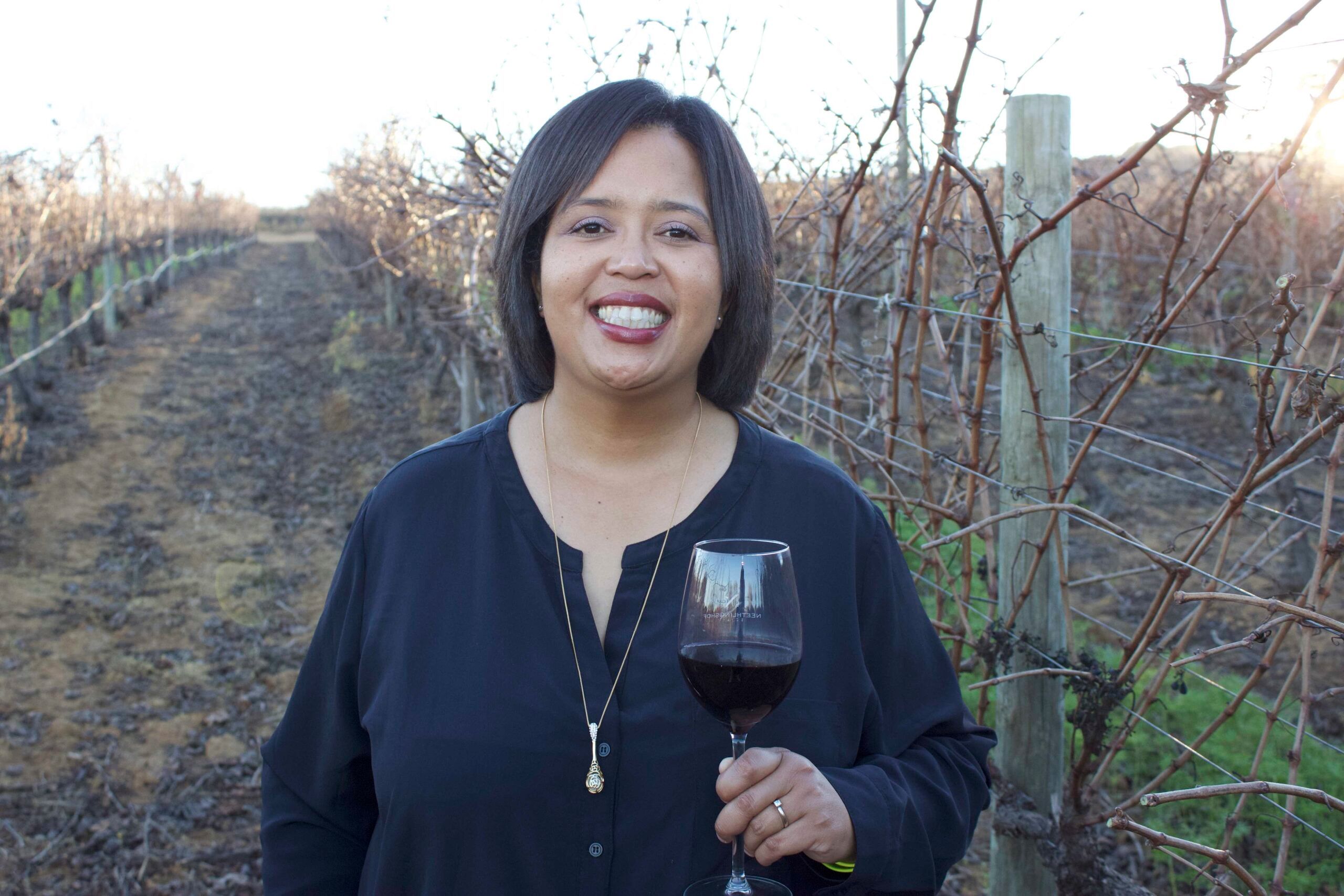The Golden Vines initiative was set up by Lewis Chester of Liquid Icons and the late Gerard Basset’s wife, Nina Basset, to help drive real change when it comes to diversity and inclusion in the wine industry.
The inaugural Taylor’s Port Golden Vines Diversity Scholarships received 42 entires from black and ethnic minority students from 23 countries who were looking to take advantage of £55,000 investments to help them study for either the Masters of Wine and Master Sommelier programmes.
The scholarships have been designed so that they cover all the training, support materials and examination costs needed to potentially complete the MW and MS courses, as well as help cover any loss of earnings during their work placement internships.
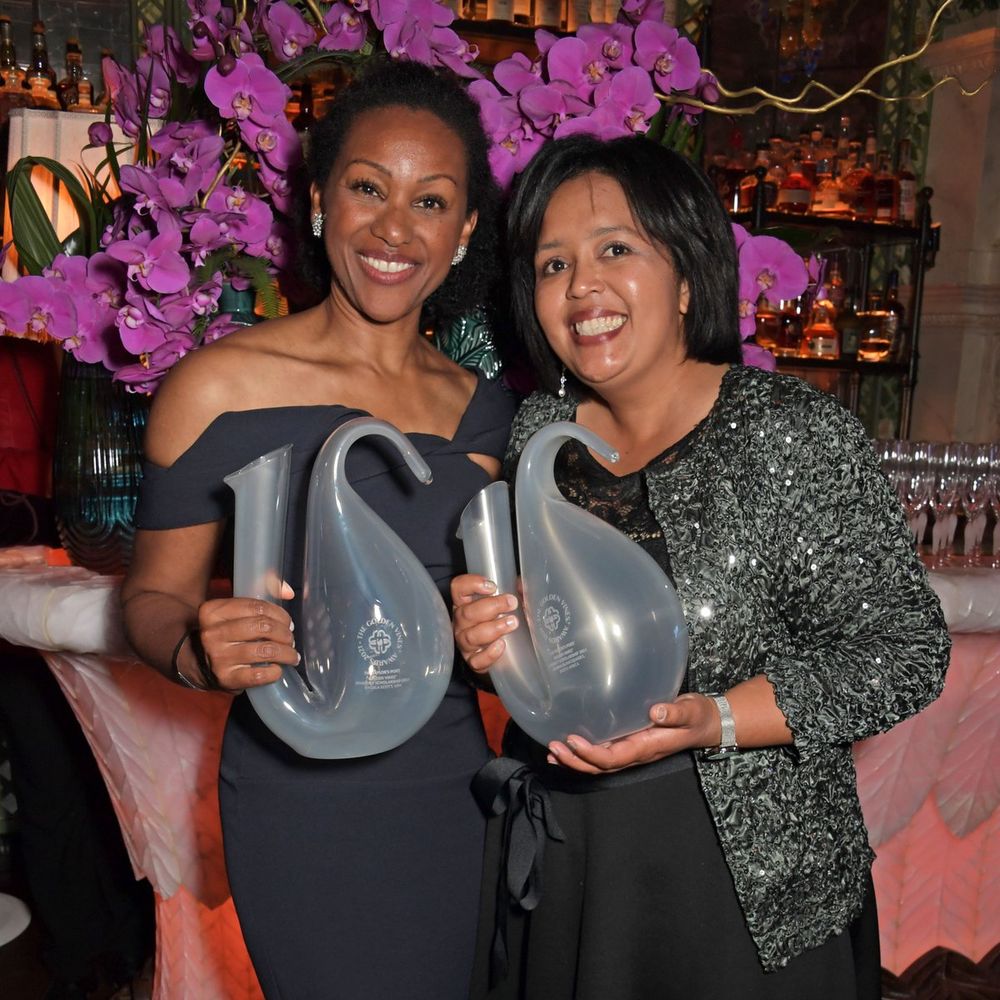
Taylor’s Port Golden Vines Diversity Scholarships winners Angela Elizabeth Scott, left and Dr Erna Blancquaert
The Golden Vines team has worked closely with producers all over the world to set up an extensive internship programme that gives the two winners the chance to spend time at some of the world’s most important estates including: Château Cheval Blanc, Liber Pater, Château Smith Haut Lafitte and Château d’Yquem in Bordeaux; Dom Pérignon and Ruinart in Champagne; Domaine Baron Thenard, Domaine des Lambrays and Domaine Laroche in Burgundy; Weingut Egon Müller in Germany; Symington Family Estates and Taylor’s Port in Portugal; Colgin Cellars, Lawrence Wine Estates (Heitz Wine Cellars, Stony Hill Vineyard, Ink Grade Estate & Burgess Cellars) and Opus One in California; Klein Constantia and Vilafonté in South Africa; Bodega Catena Zapata in Argentina; Lapostolle Clos Apalta and Vina Vik in Chile; and The Macallan distillery in Scotland.
The programme also includes the chance to study and take modules at UC Davis Department of Enology & Viticulture, the WOW Wine School (Porto), the Kedge Wine School, and the OIV.
The judging panel for scholarships included: Nina Basset; Rajat Parr (Sandhi Wines); Carlton McCoy MS (Heitz Cellar); Clement Robert MS (The Birley Clubs and Annabel’s); and Jancis Robinson MW. The judges will also provide ongoing mentorship to The Golden Vines Diversity Scholars during their academic journey.
Here we talk to Dr Erna Blancquaert about her background in wine and the opportunities she hopes the scholarship will now offer her.
Can you tell us about your background and how you got into the wine sector?
I was born and bred in Paarl in South Africa. Being surrounded by vines and seeing how it grows, the excitement around harvest time and the descriptors on the wine labels – all of this got me thinking. I love – and still do- science and found out the Stellenbosch University offers a BScAgric degree in Viticulture and Oenology, now known as Grapevine and Wine Sciences.
What was it about wine that made you want to study it and make it part of your academic career?
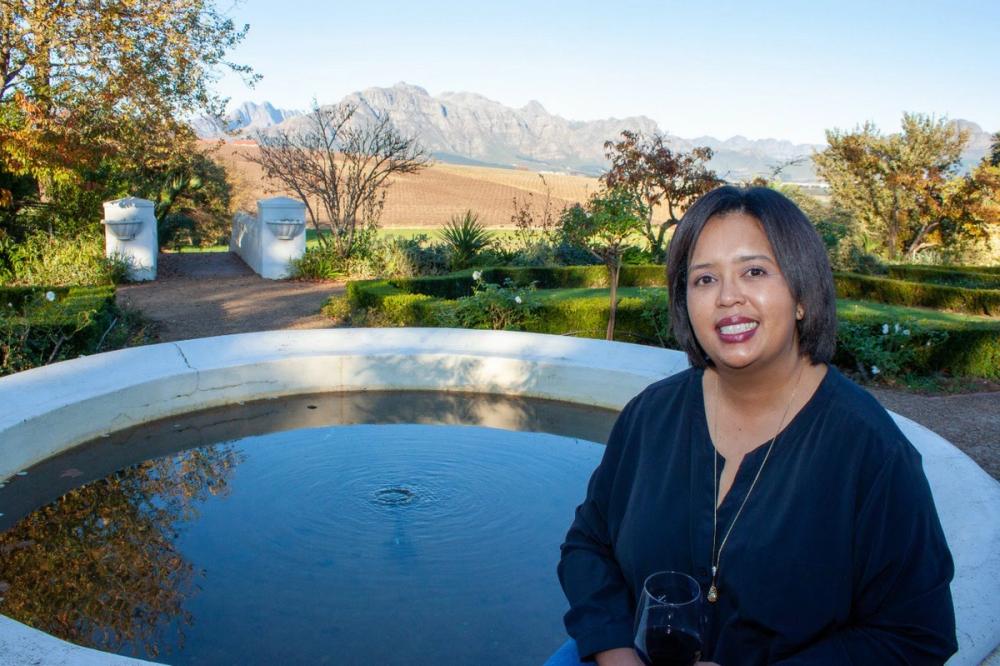
Dr Erna Blancquaert says it is daily challenge to combat prejudice in the wine industry and academia
Curiosity got me to venture into vitiviniculture as a career. Not perceiving the aromas on a wine label when tasting grapes got me hooked. Dr Victoria Carey, the first female to obtain a PhD in Viticulture at Stellenbosch University in 2005, was one of my undergraduate lecturers. An amazing mentor and trailblazer who conducted the first terroir study in Stellenbosch.
Her passion for viticulture struck me and I ended up enrolling for a MSc in Viticulture and later with my PhD, under her supervision. Dr Carey sadly emigrated to Canada which was a big loss for the South African Viticulture research fraternity. She made a lasting impression on my academic career – changing the narratives as a female in a male dominated field. Professory Alain Deloire became my PhD supervisor after Dr Carey left and he knew how to bring the best out in me and didn’t judge me for a second. He was one of the first people to congratulate me on receiving this award and immediately identified the obstacles I will face when I am back in South Africa. He was spot on as usual.
You have already achieved a great deal with your work at Stellenbosxh University. Can you give us a brief synopsis of the research you have been able to do?
My research focuses on the impact of abiotic stressors on grape quality. I have research collaborations with Distinguished Professor Markus Keller from Washington State University and Professor Michaela Griesser from BOKU University in Austria investigating the impact of berry shrivel on grape qualitative traits.
This research is pivotal as the demands from the entire value chain are on the increase. Grape producers gets paid per ton of grapes delivered, winemakers are waiting for a specific aroma profile or phenolic ripeness and the consumer wants lower alcohol wines. But what is that optimum aroma or phenolic ripeness that the winemakers are waiting for?
Furthermore, grapevines are sessile and are constantly adapting to the changing climatic conditions. Producers are being encouraged to farm more sustainably and in some more recent work of mine I have collaborated with colleagues, Professors Sam Crauwels and Bart Lievens, at KU Leuven, Belgium to investigate the use of biostimulants as a greener alternative in grape production.
Have you had to face any challenges coming from a BIPOC background in the world of wine study and academia?
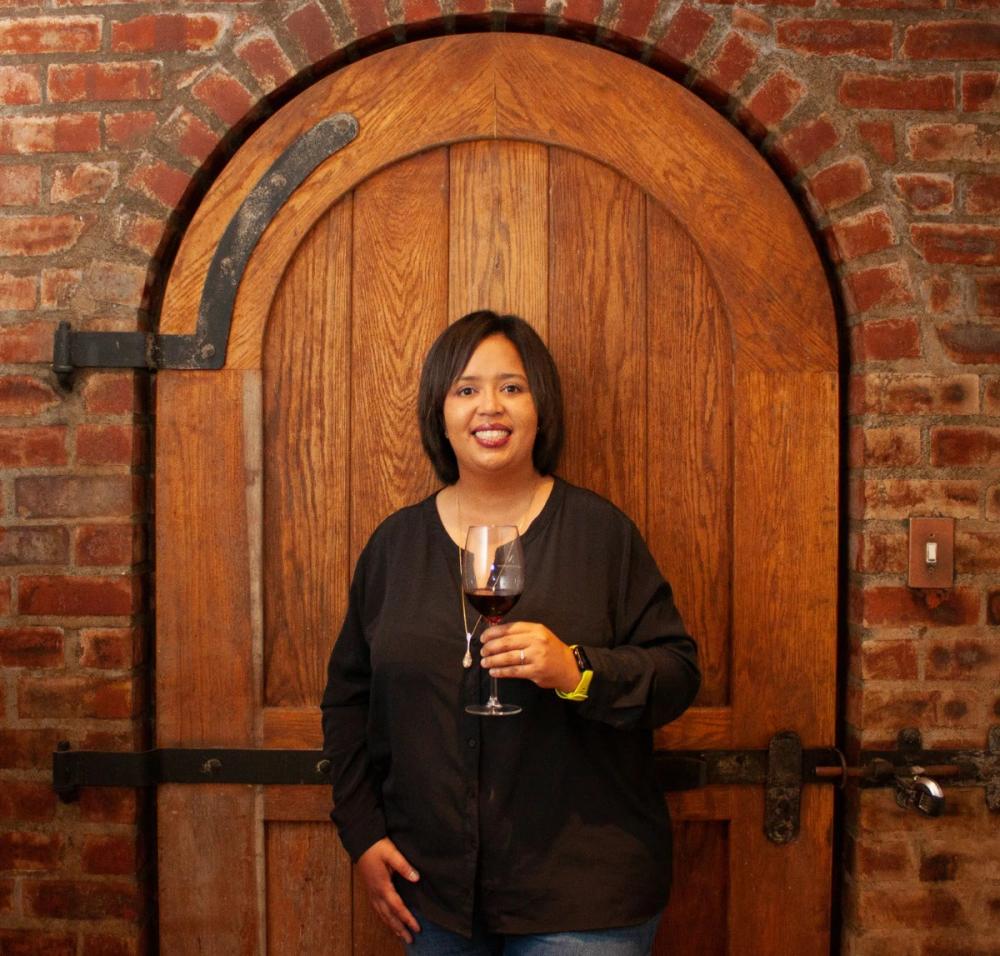
Dr Erna Blancquaert hopes the Golden Vines Scholarships will give more people from BIPOC backgrounds the opportunity and confidence to make the most of their skills and talent
I face challenges on a daily basis. As a BIPOC individual your intentions, intelligence and integrity gets questioned every minute of the day. There is no room for minced words as you need to be at a “certain level” to be accepted or invited to events. One of my friends refers to it as “currency” and I don’t have it. You walk into a lecture hall and I know which students will make my life difficult. These students normally pose questions which they think are challenging to test me.
On the research side your research ideas might be challenged for “lacking something”. Yet if these ideas are presented internationally the responses are the opposite.
Why did you enter the Golden Vines awards?
I started itching to study again but I was unsure what I wanted to do. The opportunity came along when I was contacted by individuals in the South African wine industry who thought I had the requirements for the scholarship. One of the main objectives of the scholarship is to increase diversity. In my working environment I have one colleague, Professor Evodia Setati, who is a microbiologist by trade who is from a BIPOC background. There isn’t anyone else.
There are a growing number of BIPOC individuals in the South African wine industry whose voices are not beingheard. You sometimes feel like you are losing it or imagining things, but explicit ostracisation is the norm in the wine world.
What is your response to winning the scholarship?
I am humbled to be one of the recipients of this scholarship. It also comes with a tremendous responsibility.
What are your next steps in terms of using the prize to help with your studies?
I am in the process of doing all the planning, but it will definitely include some visits to the phenomenal producers some of whom I have only read about.
What do you hope the Golden Vines initiative can do for the wider wine industry?
My hope for the South African and international wine industry as that their will come an end to the “gate keeper” phenomenon and that every voice at the table will truly be listened to.
What advice would you give to others starting out in the wine industry?
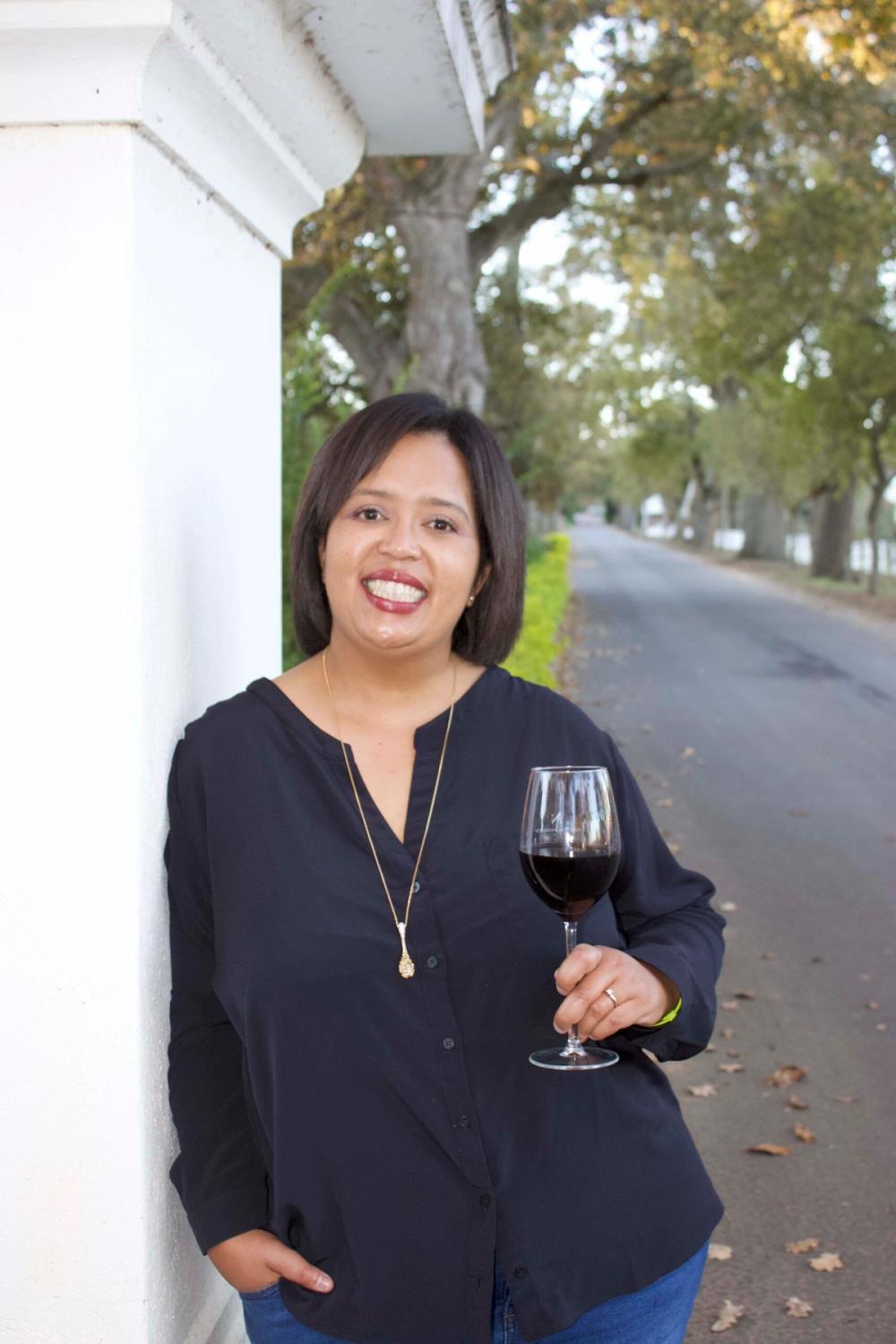
Dr Erna Blancquaert hopes to use the scholarship to help her with her future viticulture studies
The industry is a tough one, but with no pain there is no gain. Learn as much as possible from the leaders in the field. Mentors are valuable and surround yourself with people who want to see you succeed and grow. Don’t stagnate –always look upward and onward.
What would you like to see in the sector to help promote and implement better diversity and inclusion?
As a BIPOC individual you are always being questioned. My wish is the prejudice behaviours are eradicated. We are just all trying to do a job and earn our living. Be cordial and just cut someone a break. We all just need someone to believe in us. Life is short – do you want to make an impression on someone as a change maker who believed in a BIPOC individual or making someone hating to get up in the morning. Some individuals have no other option to go back to that toxic environments.
Are you looking to use your experience to mentor others?
I have a number of mentees already. One of my mentors, the late Professor Mohammed Karaan, always told me to pass on the baton. I will keep doing it, because we need to make the circle bigger.
What skills and sort of personality do you think you need to succeed in the wine industry?
Patience, grit, tenacity and a love for nature (if you are into viticulture).
What are your personal ambitions in wine?
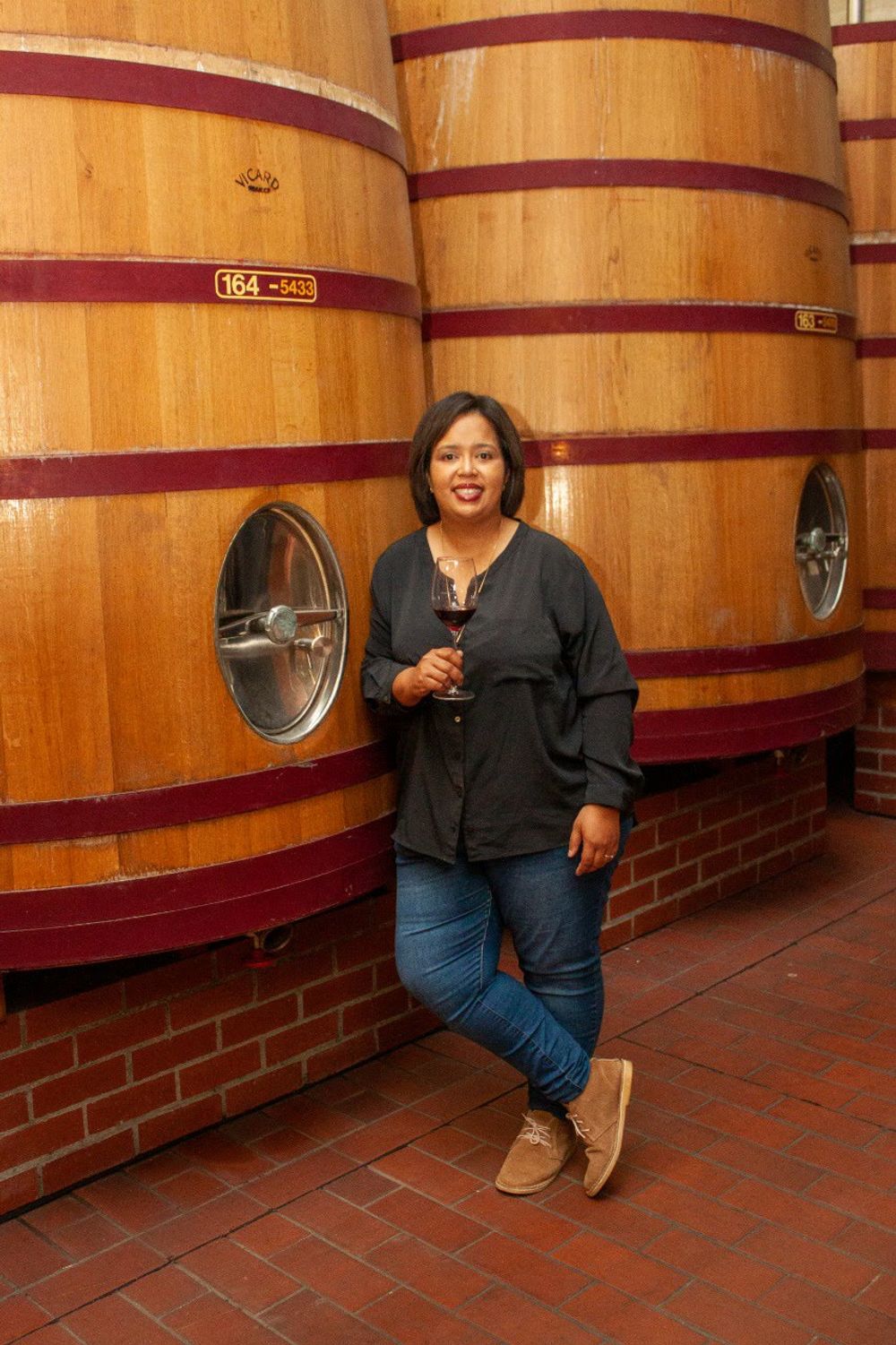
Dr Erna Blancquaert says she is looking forward to working with viticulture experts from around the world
People might think that I am over qualified for doing a MW, but a PhD equips you with a number of skills which you apply on one topic. My ambition is to have an in-depth understanding of the entire value chain and to be able to convey the latest information to my undergraduate students and addressing vitiviniculture challenges through my research.
Will winning the scholarship have a direct impact on the studies and research will you will be able to do in the future?
Definitely, it will enable me to equip our undergraduate students with what is happening in the international wine arena. It will also help to conceptualise new research projects and collaborate with international experts.
What styles of wine and countries do you particularly like and why?
I love Chenin Blanc and am lucky in that South Africa produces some of the best Chenins in the world. I also appreciate a good Malbec from Argentina. I love the culture, passion and the detail of the producers in making these wines. Bordeaux blends are a treat as well. Understanding the expression of the terroir of these blends are mind blowing.
Winners of the Golden Vines® 2021 Awards

Kylie was the star attraction at the Golden Vines Awards ceremony at Annabel’s earlier this month
- The SGC Golden Vines Best Fine Wine Producer in Europe Award: Weingut Egon Müller, Mosel Valley, Germany
- The Gucci Golden Vines Best Fine Wine Producer in the Americas Award: Ridge Vineyards, Santa Cruz Mountains, California, USA
- The VistaJet Golden Vines Best Fine Wine Producer in the Rest of the World Award: Penfolds, South Australia, Australia
- The Rolls-Royce Motor Cars Golden Vines World’s Best Fine Wine Producer Award: Domaine de la Romanée Conti, Burgundy, France
- The Virgin Galactic Golden Vines World’s Best Rising Star Award: Domaine Arnoux-Lachaux, Burgundy, France
- The Julius Baer Golden Vines Innovation Award: Coravin, US
- The Macallan Golden Vines Hall of Fame Award: Aubert de Villaine, Burgundy, France
- The Liquid Icons Special Award for Wine Entrepreneurialism – The Most Successful Rosé Wine Launch of 2020/21: Kylie Minogue Wines, UK
- You can find out more about the Golden Vines initiatives here.
- You can find out more about the Gerard Basset Foundation here that was set up to honour the legacy and memory of Gérard Basset OBE MW MS by addressing the wine industry’s most pressing issues through education, training and mentorship.
